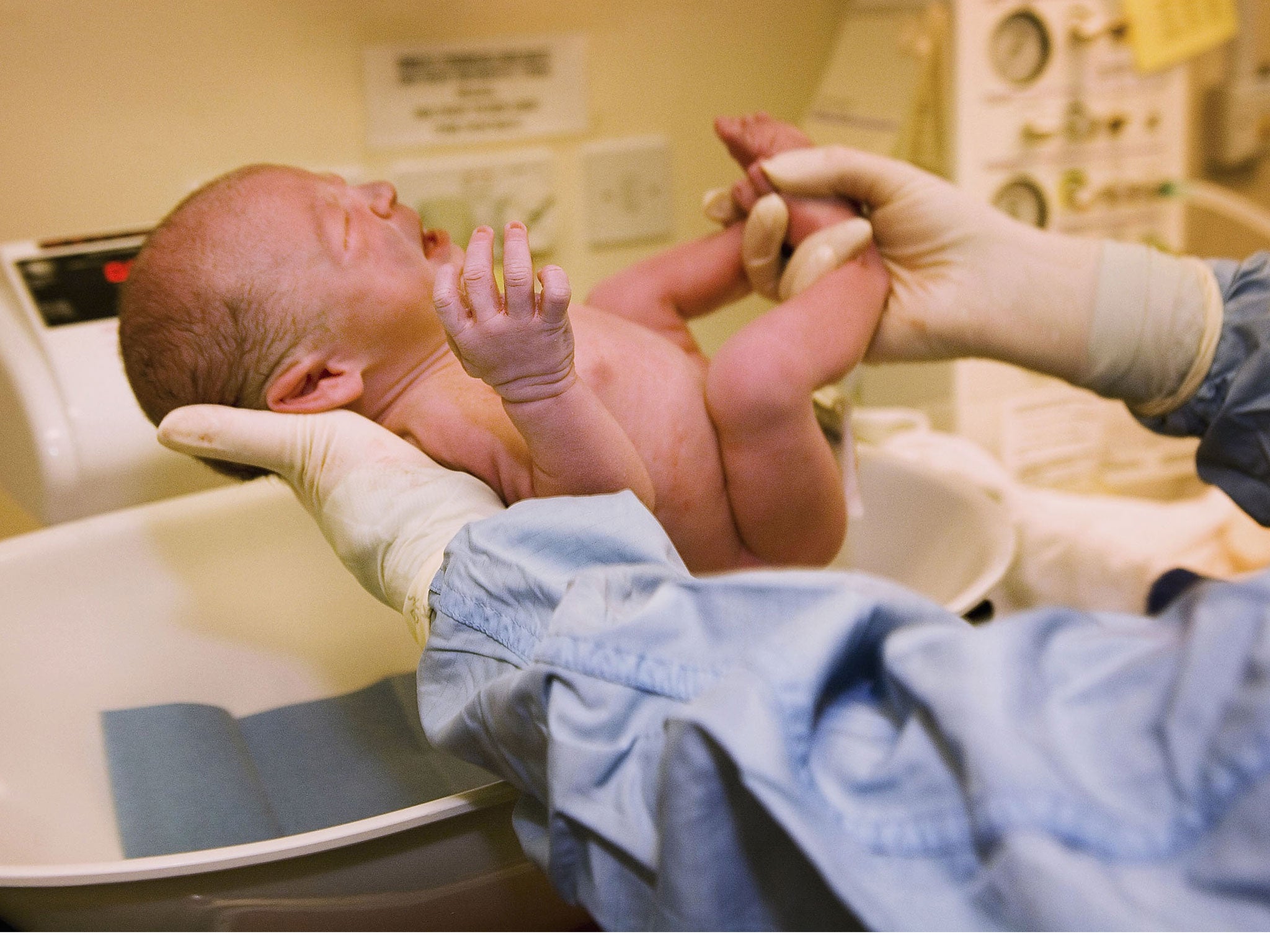Midwives and patients warn of ‘devastating’ staff shortages
As an Independent article by an exasperated midwife goes viral, mothers, patients and other NHS professionals come forward with their own experiences of maternity care

Your support helps us to tell the story
From reproductive rights to climate change to Big Tech, The Independent is on the ground when the story is developing. Whether it's investigating the financials of Elon Musk's pro-Trump PAC or producing our latest documentary, 'The A Word', which shines a light on the American women fighting for reproductive rights, we know how important it is to parse out the facts from the messaging.
At such a critical moment in US history, we need reporters on the ground. Your donation allows us to keep sending journalists to speak to both sides of the story.
The Independent is trusted by Americans across the entire political spectrum. And unlike many other quality news outlets, we choose not to lock Americans out of our reporting and analysis with paywalls. We believe quality journalism should be available to everyone, paid for by those who can afford it.
Your support makes all the difference.“Exhausted, frustrated and dissatisfied, so that I am not able to the good job I know I am capable of doing”.
The words of one midwife, writing in The Independent yesterday, have struck a chord with colleagues across the profession who today warned of the devastating impact that the midwife shortage is having on patient care and professionals’ own wellbeing.
Writing anonymously, an NHS midwife explained that, after 10 years in the profession, staff shortages and work pressures mean that she can no longer carry on working regular 13 hour shifts, often with only three or four midwives to care for 28 women and 16 babies at any one time.
The Royal College of Midwives (RCM) called the account “depressingly familiar” and condemned the Government for failing to act on warnings that the NHS needs thousands more midwives, while readers contacted The Independent to recount their own experiences on Britain’s stretched maternity units.
On Twitter, Sheena Byrom, a midwife for three decades, said the article was “tragic” but a “reality for so many”, while Aimée Humphreys, a student midwife in London, said that the article was “sad” and that she knew other midwives who were considering quitting. Another midwife, Karen Evans, said that the article was being shared by members of the profession on social networking sites, adding: “We all feel the same.” 75,000 people were referred to the article on The Independent’s website, via social media sites.
One midwife, who also asked not to be identified, said the job had become “soul-destroying”.
“I have a family and have to work full time, but there is no flexibility for me, my on-calls are 16 hours and between working days too. Last time I got called out, I was awake for nearly 21 hours straight. I definitely wasn't safe, but so we got told, other [NHS] trusts do it.”
There was also evidence that shortages are increasing pressure on other maternity ward staff. Julia Ward, a trainee in obstetrics and gynaecology, said that “patient expectations and demands” were increasing “as resources are reduced”.
A maternity ward healthcare assistant said that she had left her hospital after 12 years, commenting: “We were permanently down by 125 hours staffing a week. We were not allowed to leave the ward during our break on many occasions as there was no member of staff to cover us in an emergency. The workload was huge and we would often have to work the postnatal ward, labour ward and run in maternity theatre all on our own.”
Patients also responded to the piece. One mother said that she had “nearly died” during labour, and had been “barely attended”. “This has helped me to make sense of why,” she said. “I had no idea midwife staff shortages were that bad.”
Katherine Murphy, chief executive of the Patients Association said the article was a “damning and saddening indictment of the way the NHS has let staffing levels in maternity wards drop dangerously low” and called for a review of safe staffing levels on maternity wards.
A report by the National Audit Office in November last year said that England has 2,300 fewer midwives than it needs. The national birth rate hit 40-year highs in 2011-12 and increases in the number of midwives have not matched increased demand the RCM says, adding that about a third of maternity units did not have enough staff and that one in five units has had their budgets cut.
Suzanne Tyler, the RCM’s director of services to members, said that 87 per cent of midwives had told the college they regularly worked for longer than their contracted hours, often for two to four hours extra. “When that becomes something that happens week in week out it starts to take a toll on the midwives and the quality of the service they can provide,” she said.
The Department of Health has said that said that “a record 5,000” more midwives are currently in training and set to qualify in the next three years.
Join our commenting forum
Join thought-provoking conversations, follow other Independent readers and see their replies
Comments